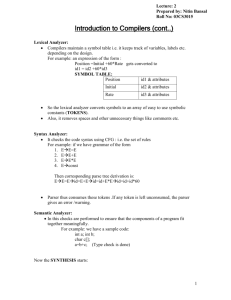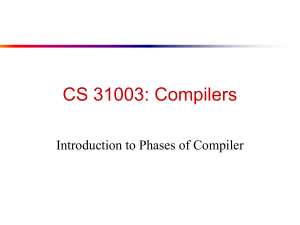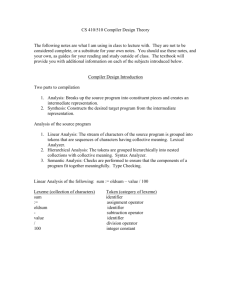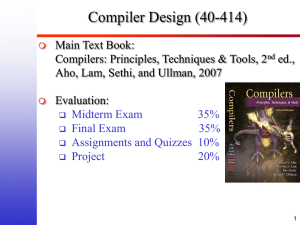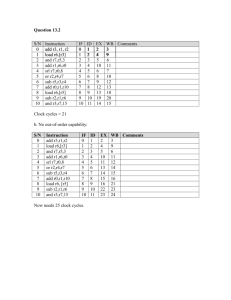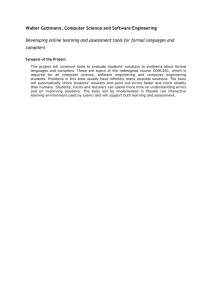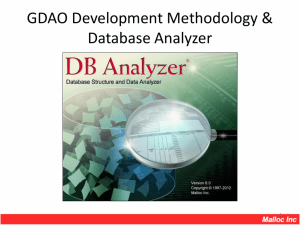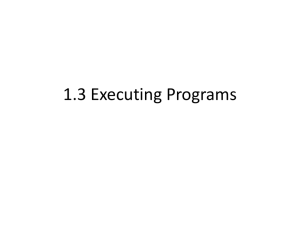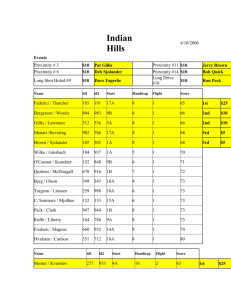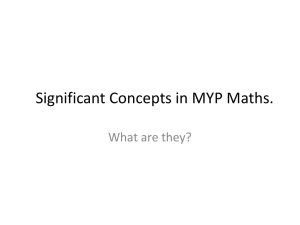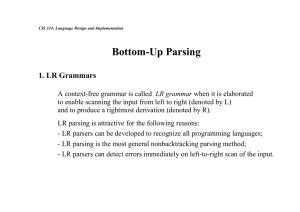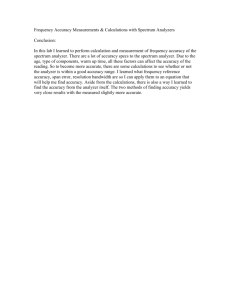Lexical Analysis:
advertisement
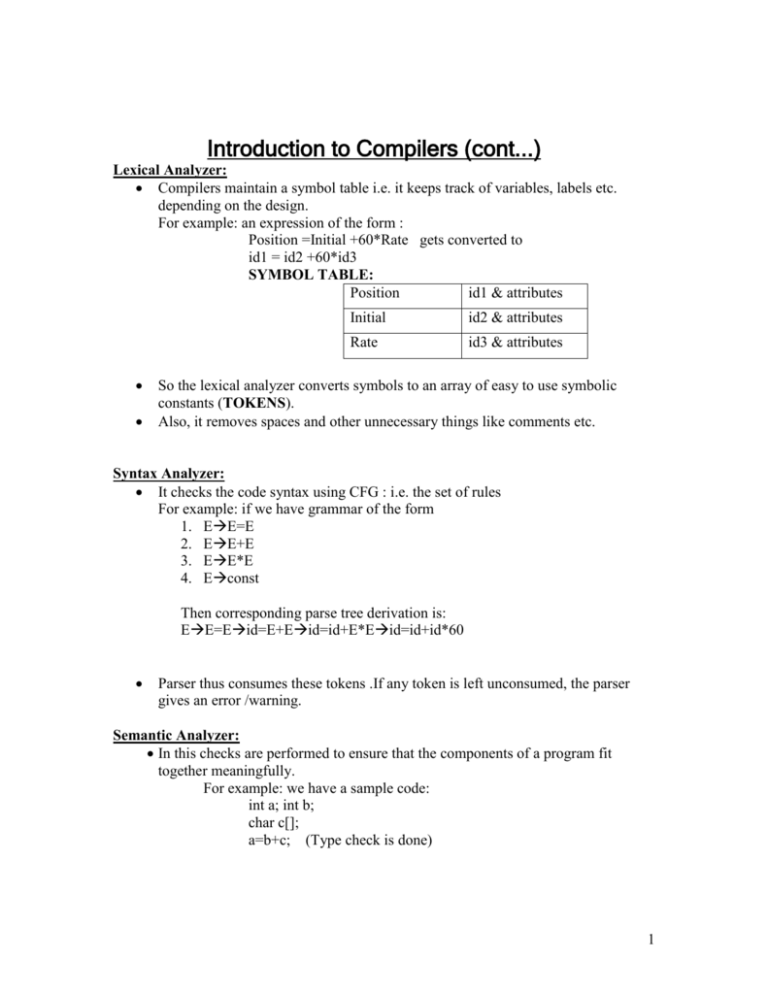
Introduction to Compilers (cont...) Lexical Analyzer: Compilers maintain a symbol table i.e. it keeps track of variables, labels etc. depending on the design. For example: an expression of the form : Position =Initial +60*Rate gets converted to id1 = id2 +60*id3 SYMBOL TABLE: Position id1 & attributes Initial id2 & attributes Rate id3 & attributes So the lexical analyzer converts symbols to an array of easy to use symbolic constants (TOKENS). Also, it removes spaces and other unnecessary things like comments etc. Syntax Analyzer: It checks the code syntax using CFG : i.e. the set of rules For example: if we have grammar of the form 1. EE=E 2. EE+E 3. EE*E 4. Econst Then corresponding parse tree derivation is: EE=Eid=E+Eid=id+E*Eid=id+id*60 Parser thus consumes these tokens .If any token is left unconsumed, the parser gives an error /warning. Semantic Analyzer: In this checks are performed to ensure that the components of a program fit together meaningfully. For example: we have a sample code: int a; int b; char c[]; a=b+c; (Type check is done) 1 SYNTHESIS: Intermediate Code Generation: We can think of this intermediate representation as a program for an abstract machine. For the example used in lexical analysis the intermediate representation will be: temp1=initoreal(60) temp2= id3*temp1 temp3=id2+temp2 id1=temp3 Code Optimization: This phase attempts to improve the intermediate code, so that faster running machine code will result .Some optimization are trivial. So the final code for example above will be temp1=id3*60 // removed unnecessary variables id1=id2+temp1 Target Code Generation: Machine (M/C) Specific Compilers may generate many types of target codes depending on M/C while some compilers make target code only for a specific M/C. It is normally the generation of relocatable machine code or assembly code. PREPARED BY: Mayank Varshney( 04CS3019) 2
